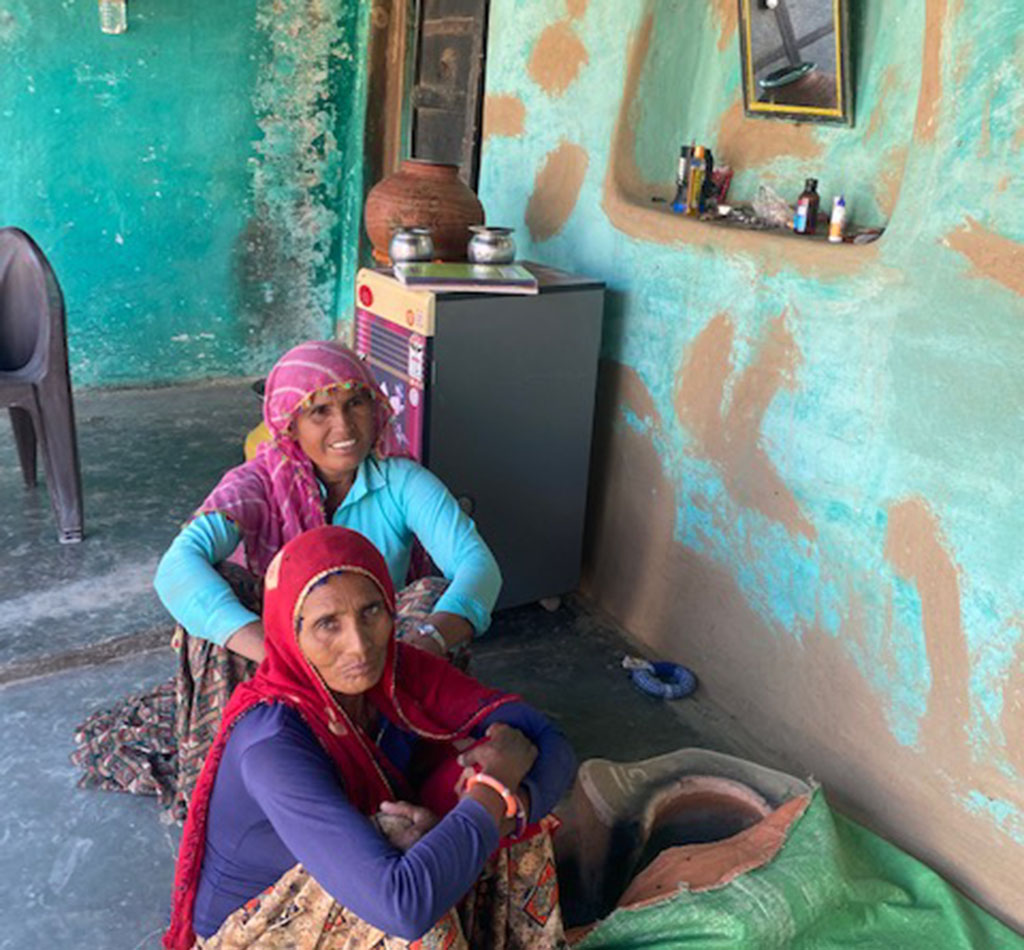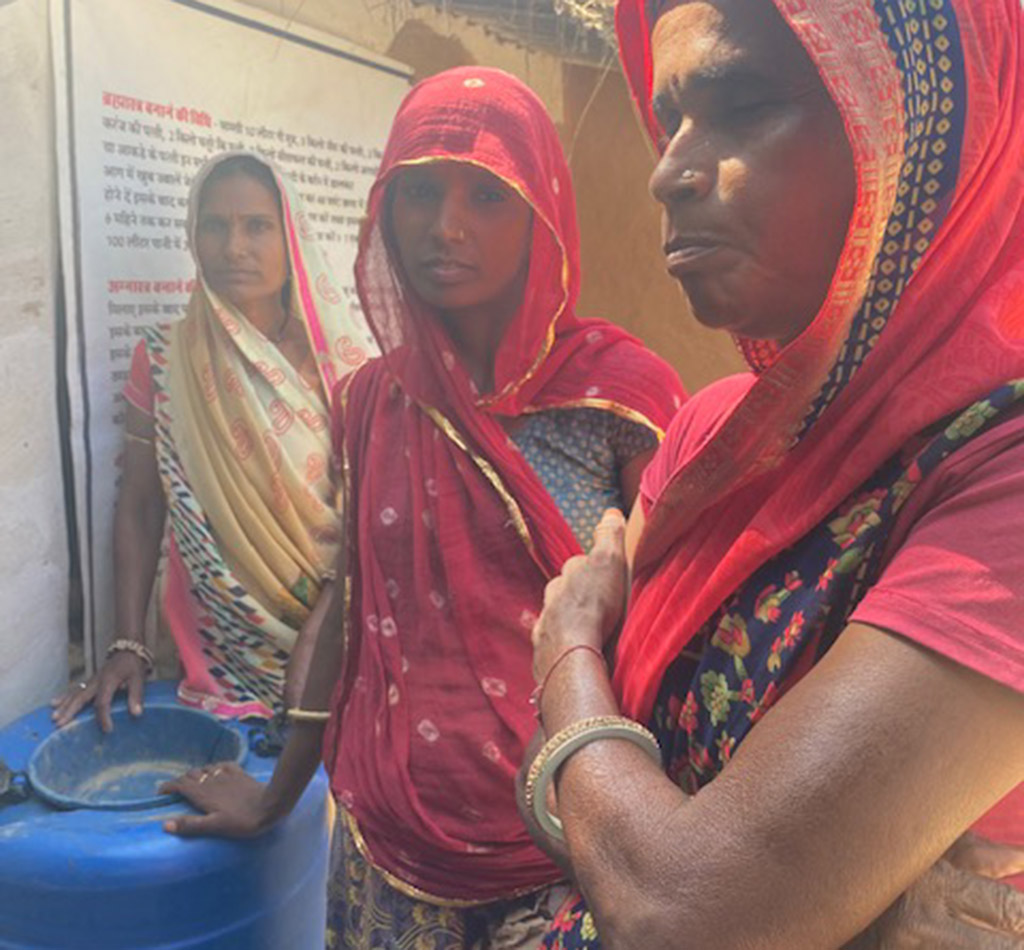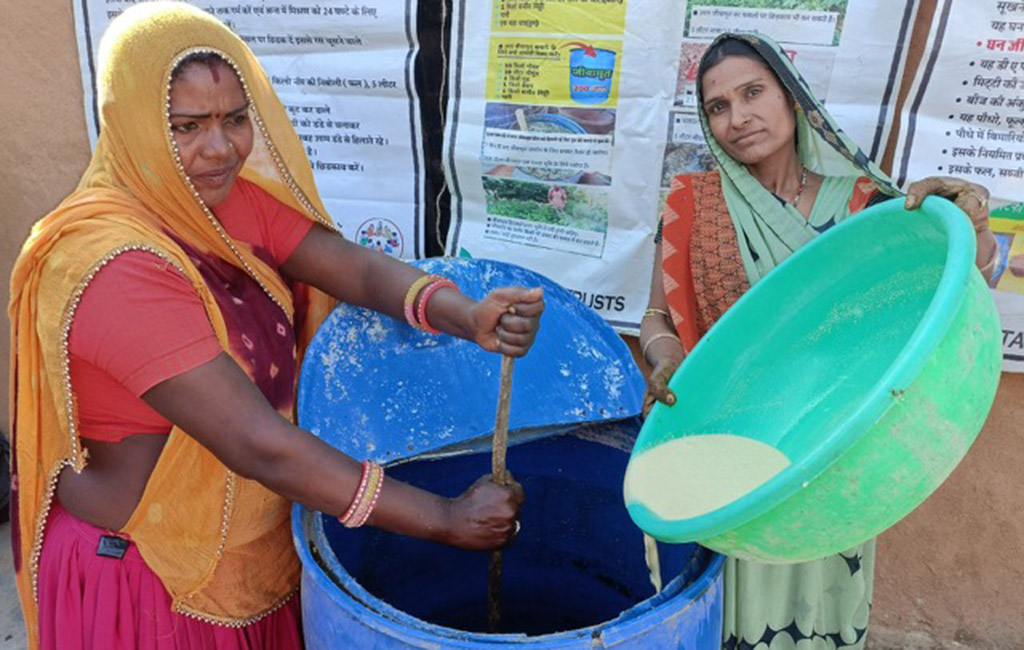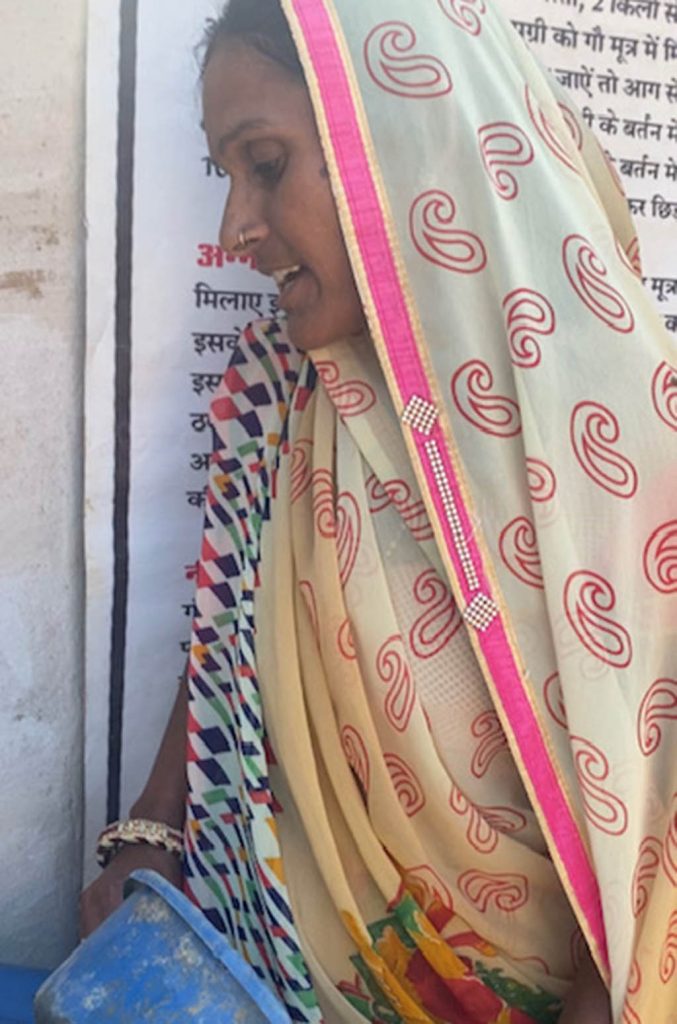When my husband and I earned, it was just about enough to make ends meet for our large family.
With him gone, a large proportion of the earnings was gone. We were in for real distress.
But being the member of a self-help group proved to be really helpful.
An NGO (the Louis Dreyfus Foundation) came to train women farmers in making organic manure and pesticide. And I grasped the opportunity instantly.
Till then our village farmers – both men and women – had been using chemical pesticide and manure. We learnt about the benefits of chemical-free natural farming.
We learnt that using natural resources would rejuvenate our lands, sustain biodiversity and protect the environment.
Using things like jaggery and gram flour in addition to natural resources like cow dung and urine, I learnt to make four organic products – brahmastra, neemastra, jeevamrut and beejamrut.




